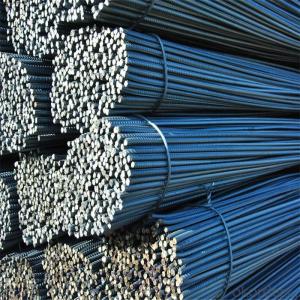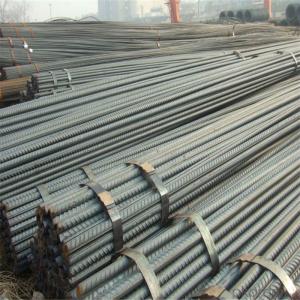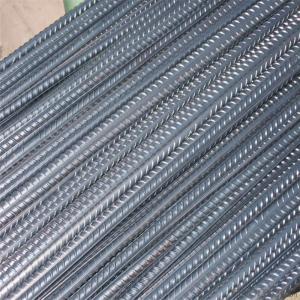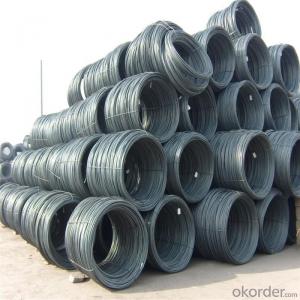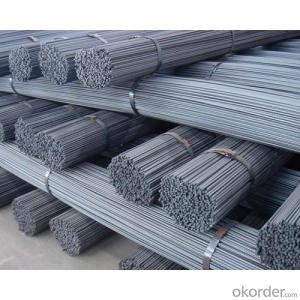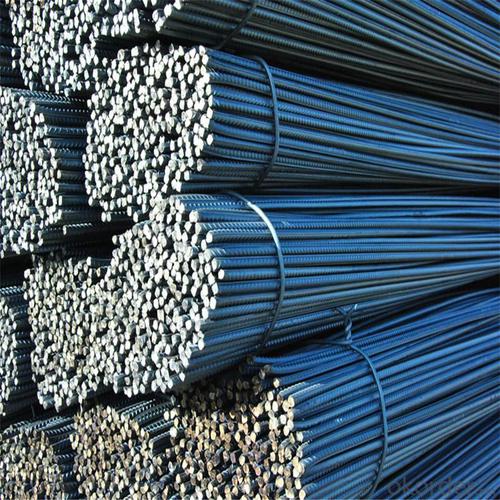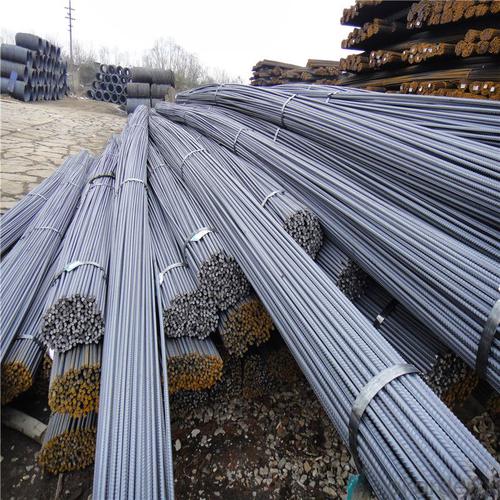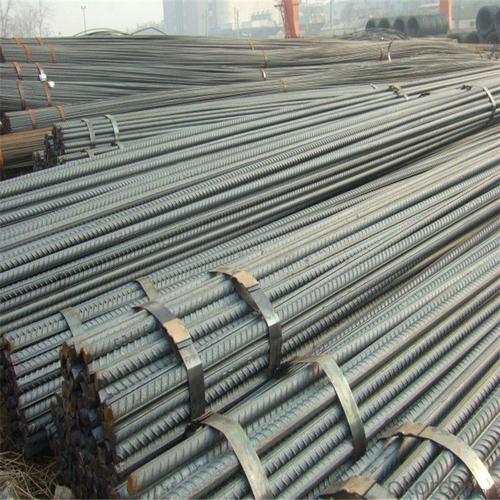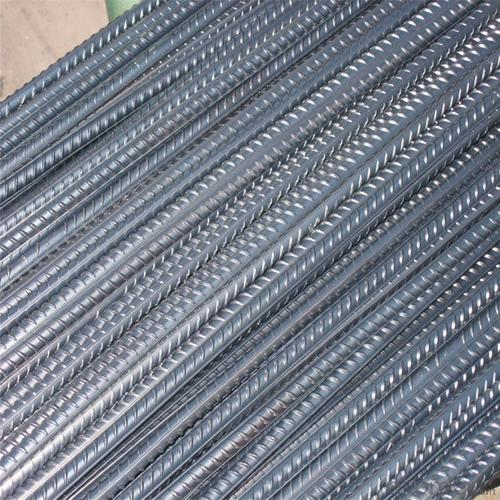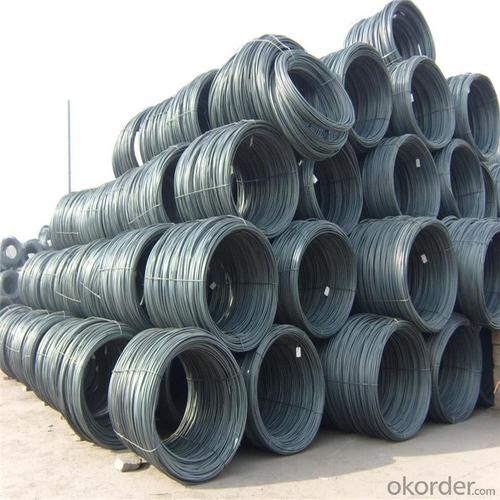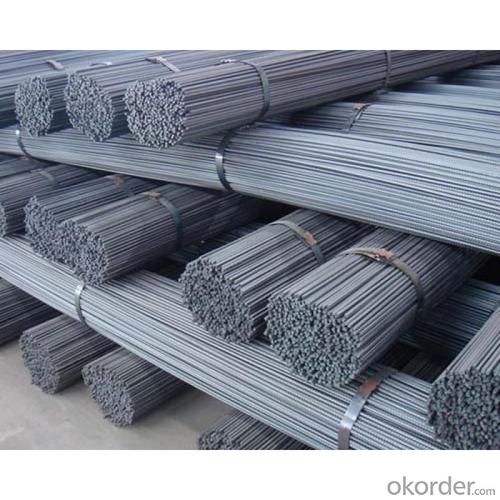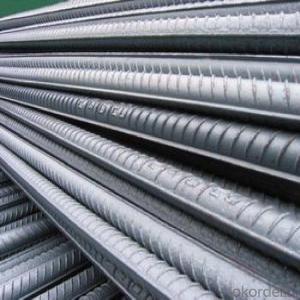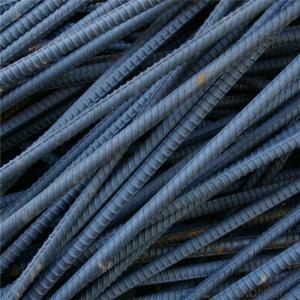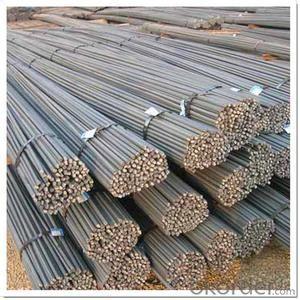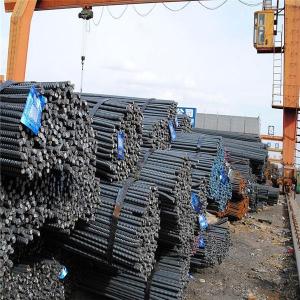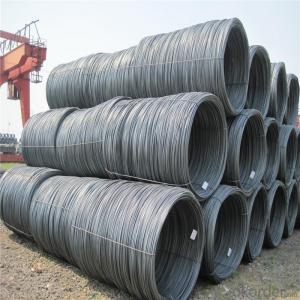Malaysia Steel Rebar Hrb400
- Loading Port:
- Tianjin
- Payment Terms:
- TT OR LC
- Min Order Qty:
- 110 m.t.
- Supply Capability:
- 500000 m.t./month
OKorder Service Pledge
OKorder Financial Service
You Might Also Like
Specification
Malaysia Steel Rebar Hrb400
Description of Malaysia Steel Rebar Hrb400
1, Diameter: 5.5mm-10mm Malaysia Steel Rebar Hrb400
10m- 40mm Malaysia Steel Rebar Hrb400
2, Length: 6m, 9m, 12m or customized
3, Standard: GB, ASTM, AISI, SAE, DIN, JIS, EN
OEM technology - send detailed technical parameters for accurate quotation.
2, Produce Process: smelt iron - EAF smelt billet - ESR smelt billet -
hot rolled or forged to get the steel round bar and plate
3, Heat Treatment: annealing, normalizing, tempering, quenching
4, Surface Treatment: Black
5, Quality Assurance: We accept third party inspection for all orders.
You can ask testing organizations such as SGS, BV, etc. to test our products before shipping.
Chemical Composition of Malaysia Steel Rebar Hrb400
Grade | Technical data of the original chemical composition(%) | |||||
Reinforcing steel bar HRB335 | C | Mn | Si | S | P | B |
≤0.25 | ≤1.60 | ≤0.80 | ≤0.045 | ≤0.045 | >0.0008 | |
Physics Capability | ||||||
Yield Strength(N/cm2) | Tensile Strength(N/cm2) | Elongation(%) | ||||
≥ 335 | ≥490 | ≥16 | ||||
Reinforcing steel bar HRB400 | C | Mn | Si | S | P | B |
≤0.25 | ≤0.16 | ≤0.80 | ≤0.045 | ≤0.045 | 0.04-0.12 | |
Physics Capability | ||||||
Yield Strength(N/cm2) | Tensile Strength(N/cm2) | Elongation(%) | ||||
≥ 400 | ≥ 570 | ≥ 14 | ||||
Products Show of Malaysia Steel Rebar Hrb400
Company Information
CNBM International Corporation is the most important trading platform of CNBM group.
Whith its advantages, CNBM International are mainly concentrate on Cement, Glass, Iron and Steel, Ceramics industries and devotes herself for supplying high qulity series of refractories as well as technical consultancies and logistics solutions.


F A Q
1, Your advantages?
professional products inquiry, products knowledge train (for agents), smooth goods delivery, excellent customer solution proposale
2, Test & Certificate?
SGS test is available, customer inspection before shipping is welcome, third party inspection is no problem
3, Factory or Trading Company?
CNBM is a trading company but we have so many protocol factories and CNBM works as a trading department of these factories. Also CNBM is the holding company of many factories.
4, Payment Terms?
30% TT as deposit and 70% before delivery.
Irrevocable L/C at sight.
5, Trading Terms?
EXW, FOB, CIF, FFR, CNF
6, After-sale Service?
CNBM provides the services and support you need for every step of our cooperation. We're the business partner you can trust.
For any problem, please kindly contact us at any your convenient time.
We'll reply you in our first priority within 24 hours.
- Q: What are the main applications of special steel in the marine sector?
- Special steel is widely used in the marine sector for various applications. Some of the main applications include shipbuilding, offshore oil and gas exploration, and marine equipment manufacturing. Special steel is used to construct the hulls and superstructures of ships, as well as various components such as propellers, shafts, and rudders. Its high strength, durability, and corrosion resistance make it ideal for withstanding the harsh conditions of the marine environment. Additionally, special steel is also used in the construction of offshore platforms, pipelines, and underwater structures, as it can withstand extreme pressures and resist corrosion caused by saltwater.
- Q: How does special steel contribute to the renewable energy industry?
- Special steel plays a crucial role in the renewable energy industry by providing the necessary strength, durability, and resistance to extreme conditions for various applications. It is used in wind turbines, solar panels, and hydroelectric infrastructure, enabling the efficient and reliable generation of renewable energy. Special steel also helps enhance the performance, efficiency, and lifespan of these renewable energy systems, ultimately contributing to the sustainability and growth of the industry.
- Q: What are the different methods of surface coloring for special steel?
- There are several different methods of surface coloring for special steel, each serving a specific purpose and achieving a distinct effect. Some of the common methods include: 1. Heat Treatment: Heat treatment is a popular method for surface coloring of special steels. This process involves exposing the steel to high temperatures, which causes a controlled oxidation reaction on the surface. The result is a layer of colored oxide that can vary in hue, ranging from golden yellow to deep blue or black. Heat treatment can also improve the hardness and corrosion resistance of the steel. 2. Electroplating: Electroplating is another common method used to color the surface of special steel. It involves immersing the steel in an electrolyte bath containing a metal salt solution. An electrical current is then passed through the bath, causing the metal ions to adhere to the steel surface, resulting in a thin layer of the desired metal coating. This method allows for a wide range of colors and finishes, depending on the metal used and the desired effect. 3. Chemical Coloring: Chemical coloring is a process that involves the use of chemical solutions to alter the surface color of special steel. This method typically involves treating the steel with a solution containing specific chemicals, such as oxidizing agents or dyes. By carefully controlling the composition and concentration of the solution, it is possible to achieve a variety of colors and finishes. This method is often used for decorative purposes and can produce vibrant and uniform coloration. 4. Physical Vapor Deposition (PVD): PVD is a technique used to deposit thin layers of material onto the surface of special steel. In this method, a solid material is vaporized using a high-energy source, such as an arc or plasma, and then condensed onto the steel surface. This process allows for the deposition of various materials, including metals, ceramics, and polymers, which can result in a range of colors and surface finishes. PVD coatings are known for their durability, wear resistance, and aesthetic appeal. 5. Laser Marking: Laser marking is a non-contact method that utilizes a focused laser beam to create permanent markings or colors on the surface of special steel. By adjusting the laser parameters, such as power, speed, and frequency, it is possible to achieve different colors and surface effects. Laser marking is often used for branding, identification, or decorative purposes, as it provides high precision and can create intricate patterns or designs. Overall, the choice of surface coloring method for special steel depends on various factors, including the desired color, durability, functionality, and cost considerations. Each method offers its own advantages and limitations, allowing for customization based on specific requirements and preferences.
- Q: How does special steel contribute to improving product aesthetics?
- Special steel contributes to improving product aesthetics through its unique properties and characteristics. It can be shaped, molded, and finished in various ways, allowing manufacturers to create intricate and visually appealing designs. Special steel also offers a wide range of colors, textures, and surface finishes, enabling products to have a visually pleasing appearance. Additionally, its high strength and durability ensure that the product maintains its aesthetics over time, providing a long-lasting and visually satisfying experience for consumers.
- Q: How is special steel used in the construction of buildings and bridges?
- Special steel is used in the construction of buildings and bridges primarily due to its high strength and durability. It is commonly used for structural elements like beams, columns, and trusses, as well as for reinforcement purposes. Special steel alloys have superior properties, such as increased resistance to corrosion, heat, and impact, making them ideal for withstanding the heavy loads and harsh environmental conditions that buildings and bridges encounter. Additionally, special steel can be fabricated into various shapes and sizes, allowing for flexibility in design and ensuring structural integrity.
- Q: Can special steel be used in the production of bearings?
- Yes, special steel can be used in the production of bearings. Special steel alloys, such as stainless steel or chrome steel, offer enhanced properties like corrosion resistance, high strength, and durability, making them suitable for bearing applications in various industries.
- Q: What are the requirements for special steel used in corrosive environments?
- To ensure durability and performance in corrosive environments, special steels must possess specific properties. The requirements for these steels can be summarized as follows: 1. Excellent corrosion resistance is the primary requirement. The steels should be able to withstand aggressive substances like acids, alkalis, and salts without showing signs of corrosion. This ensures the longevity of the steel and maintains its performance. 2. High strength is crucial for handling mechanical stresses imposed on the steel in corrosive environments. It is particularly important for applications with heavy loads, pressures, or impacts, as it helps maintain the steel's integrity and structural stability. 3. Resistance to pitting and crevice corrosion is essential. These localized forms of corrosion can occur in the presence of certain aggressive chemicals or stagnant environments. Steels should be resistant to such forms of corrosion to prevent localized damage and potential failure. 4. Resistance to stress corrosion cracking is necessary. This phenomenon occurs when a corrosive environment compromises the material's integrity under tensile stress. Special steels should be resistant to stress corrosion cracking to ensure reliability under applied loads. 5. Good resistance to intergranular corrosion is important. This type of corrosion along grain boundaries weakens the material. Special steels used in corrosive environments should have resistance to intergranular corrosion to maintain structural integrity. 6. Thermal stability is essential for high-temperature corrosive environments. Special steels should exhibit thermal stability to resist degradation and maintain their properties in elevated temperatures. 7. Ease of maintenance is a desirable characteristic. Special steels used in corrosive environments should be relatively easy to clean, resistant to fouling or scaling, and compatible with commonly used cleaning agents or procedures in the industry. It is important to note that the specific requirements for special steels in corrosive environments may vary depending on the application and type of corrosive substances encountered. Therefore, careful consideration of specific needs and consultation with experts in the field is crucial for selecting the most appropriate steel for each corrosive environment.
- Q: Can special steel be used in the pharmaceutical industry?
- Yes, special steel can be used in the pharmaceutical industry for various applications. Special steel alloys such as stainless steel are often used to manufacture equipment and components required for pharmaceutical manufacturing processes. These steel alloys offer excellent corrosion resistance, high strength, and hygienic properties, making them suitable for pharmaceutical applications where cleanliness, durability, and sterility are crucial. Additionally, special steel can be used to construct storage tanks, piping systems, and vessels that are resistant to chemical reactions and contamination, maintaining the integrity and purity of pharmaceutical products.
- Q: What are the physical properties of special steel?
- Compared to regular steel, special steel possesses unique physical properties. These properties can vary depending on the specific composition and processing techniques employed. However, special steel typically exhibits high strength, hardness, and durability. Its design often aims to withstand extreme conditions, including high temperatures, pressure, and corrosive environments. Additionally, special steel may display exceptional wear resistance, making it suitable for applications involving heavy machinery or cutting tools. Moreover, it can possess superior electrical and thermal conductivity, along with favorable magnetic properties. In conclusion, the physical properties of special steel render it highly versatile and valuable across various industries, such as automotive, aerospace, construction, and energy.
- Q: What are the requirements for special steel used in mining equipment?
- The mining industry imposes strict standards on the special steel required for mining equipment due to its challenging nature. Here are some of the essential criteria: 1. Strength and toughness: The mining equipment operates in harsh conditions, enduring heavy loads, impacts, and abrasion. The special steel must possess high strength to withstand these forces and maintain its structural integrity. Additionally, it should exhibit exceptional toughness to prevent fractures and withstand sudden shocks. 2. Resistance to corrosion: Mining operations often occur in corrosive environments, such as underground mines or near water bodies. The special steel utilized in mining equipment should display remarkable resistance to corrosion and oxidation to ensure its durability and prevent premature failure. 3. Resistance to wear: Mining equipment is exposed to abrasive substances, like rocks and minerals, which can cause significant wear. The special steel employed in mining equipment should possess excellent wear resistance properties to endure continuous abrasion and prevent premature deterioration. 4. Heat resistance: The mining equipment frequently experiences high temperatures due to friction during operation or proximity to heat sources. The special steel used in mining equipment should exhibit good heat resistance to retain its mechanical properties and avoid deformation or structural failure. 5. Fatigue resistance: Mining equipment undergoes repetitive and cyclic loading, which can lead to fatigue failure over time. The special steel utilized in mining equipment should possess high fatigue resistance to prevent cracking or failure under these cyclic loading conditions. 6. Weldability and machinability: The special steel employed in mining equipment should have favorable weldability and machinability to facilitate the fabrication and assembly processes. This ensures that the equipment can be easily manufactured, repaired, or modified as necessary. 7. Compliance with regulations: Mining equipment often needs to meet specific regulatory standards and certifications to ensure safety and environmental compliance. The special steel used in mining equipment should adhere to these regulations, guaranteeing the equipment's safe operation and absence of environmental hazards. In conclusion, the requirements for special steel used in mining equipment encompass high strength and toughness, corrosion resistance, wear resistance, heat resistance, fatigue resistance, weldability and machinability, and compliance with regulatory standards. These requirements ensure that the steel can endure the harsh conditions and demanding operations encountered in the mining industry.
Send your message to us
Malaysia Steel Rebar Hrb400
- Loading Port:
- Tianjin
- Payment Terms:
- TT OR LC
- Min Order Qty:
- 110 m.t.
- Supply Capability:
- 500000 m.t./month
OKorder Service Pledge
OKorder Financial Service
Similar products
Hot products
Hot Searches
Related keywords
